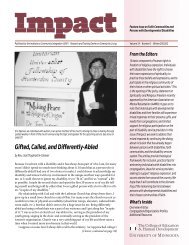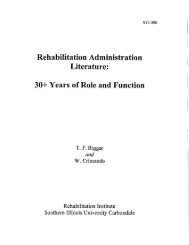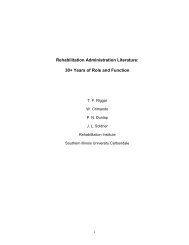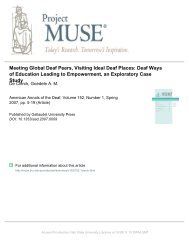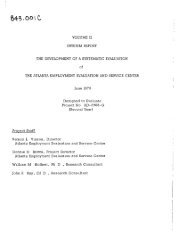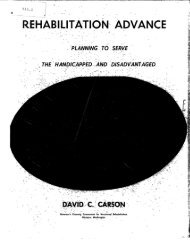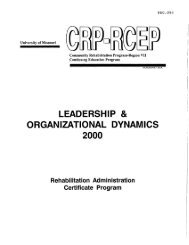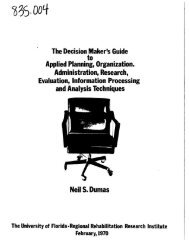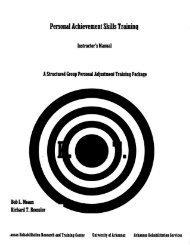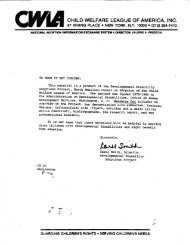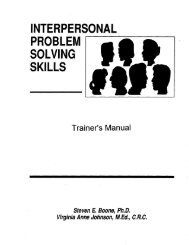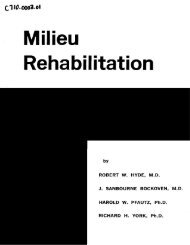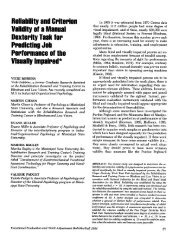by requirements for the degree of (Education) - NCRTM
by requirements for the degree of (Education) - NCRTM
by requirements for the degree of (Education) - NCRTM
Create successful ePaper yourself
Turn your PDF publications into a flip-book with our unique Google optimized e-Paper software.
According to <strong>the</strong> American Association on Mental Deficiency <strong>the</strong> levels<br />
<strong>of</strong> mental retardation and <strong>the</strong>ir correspondi.ng r .ange in Iq scores C<strong>for</strong> tests<br />
with a standard deviation <strong>of</strong> 15) are as follows:<br />
a) Borderline --70-84 IQ<br />
b) Mild 55-69 IQ.<br />
c) Moderate 40-54 IQ<br />
d) Severe 25-39 IQ<br />
e) Pr<strong>of</strong>ound -less than 25 IQ<br />
State Department (<strong>of</strong> Public Ins.truction) requires<br />
The<br />
approval and a definitive statement <strong>of</strong> need on<br />
prior<br />
pupils functioning above IQ 80 be<strong>for</strong>e placement in<br />
all<br />
education is facilitated [Wisconsin Department<br />
special<br />
<strong>of</strong> Public Instruction, 1967, p. 14).<br />
Impairments in adaptive behavior are classified in terms <strong>of</strong> four<br />
levels: mild, moderate, severe, and pr<strong>of</strong>ound. For <strong>the</strong> school .age retar-<br />
date <strong>the</strong>se descriptive terms are related to education and training.<br />
Mild--Can learn academic skills to approximately <strong>the</strong><br />
a)<br />
grade level <strong>by</strong> late teens. Cannot learn general<br />
sixth<br />
school subjects. Needs special education parti-<br />
high<br />
at secondary school age levels ["Educable").<br />
cularly<br />
Moderate--Can learn functional academic skills to<br />
b)<br />
<strong>the</strong> fourth grade level <strong>by</strong> late teens if<br />
approximately<br />
given special education ["Educable").<br />
Severe--Can talk or learn to communicate; can be<br />
c)<br />
in elemental health habits; cannot learn<br />
trained<br />
academic skills; pr<strong>of</strong>its from systematic<br />
functional<br />
training ["Trainable").<br />
habit<br />
Pr<strong>of</strong>ound--Some motor development present; cannot pro-<br />
d)<br />
from training in self-help; needs total care<br />
fit<br />
Department <strong>of</strong> Public Instruction, 1967,<br />
[Wisconsin<br />
15).<br />
p.<br />
For <strong>the</strong> adult <strong>the</strong> descriptions are related to social and vocational<br />
adequacy.<br />
Mild--Tose who with proper preparation can be fully<br />
a)<br />
<strong>of</strong> independent livi.ng in <strong>the</strong> community and<br />
capable<br />
17



